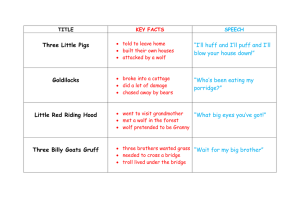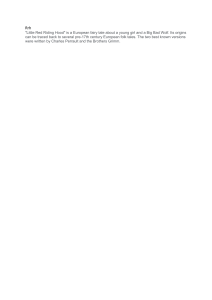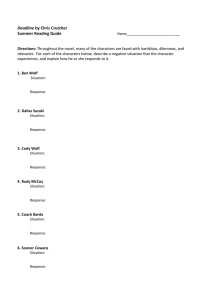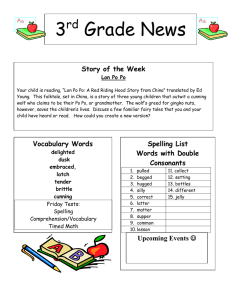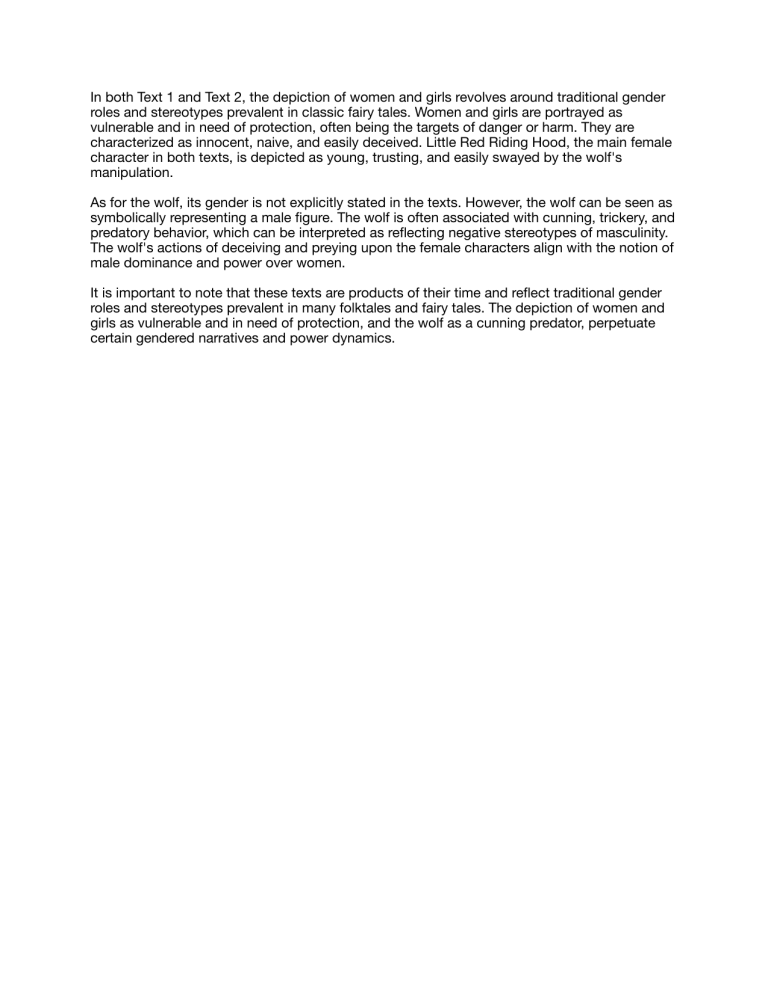
In both Text 1 and Text 2, the depiction of women and girls revolves around traditional gender roles and stereotypes prevalent in classic fairy tales. Women and girls are portrayed as vulnerable and in need of protection, often being the targets of danger or harm. They are characterized as innocent, naive, and easily deceived. Little Red Riding Hood, the main female character in both texts, is depicted as young, trusting, and easily swayed by the wolf's manipulation. As for the wolf, its gender is not explicitly stated in the texts. However, the wolf can be seen as symbolically representing a male gure. The wolf is often associated with cunning, trickery, and predatory behavior, which can be interpreted as re ecting negative stereotypes of masculinity. The wolf's actions of deceiving and preying upon the female characters align with the notion of male dominance and power over women. fl fl fi It is important to note that these texts are products of their time and re ect traditional gender roles and stereotypes prevalent in many folktales and fairy tales. The depiction of women and girls as vulnerable and in need of protection, and the wolf as a cunning predator, perpetuate certain gendered narratives and power dynamics.
